As pet lovers in the Philippines, we understand the joy and responsibility that comes with caring for a furry feline friend. Just like humans, cats age, and with age comes special needs and considerations. Senior cats require extra care and attention to ensure their well-being and comfort. In this article, we will explore the essential tips for providing the best care for your senior cat, from nutrition and health to environmental adaptations.
Key Takeaways:
- Senior cats have unique health needs that require specialized care.
- It is important to determine your cat’s age and life stage to provide appropriate care.
- Recognize the signs of aging in cats and address common health issues promptly.
- Proper nutrition and diet play a crucial role in the well-being of senior cats.
- Provide a comfortable and supportive environment for your elderly cat’s mobility.
Determining Your Cat’s Age and Life Stage
Knowing your cat’s age and life stage is essential in providing appropriate care and veterinary checkups. There are several methods to estimate your cat’s age, with dental examination being a reliable indicator.
Dental Health: Cats’ teeth go through specific changes as they age, providing valuable clues about their age. Kittens have 26 deciduous teeth, which are eventually replaced by 30 permanent teeth by the age of six months. As cats grow older, their teeth may show signs of wear and tartar buildup, indicating a more advanced age.
Cat Age Determination: The condition of your cat’s teeth, including the presence of decay, wear, or missing teeth, can help estimate their age. A thorough examination by a veterinarian will provide more accurate results.
Moreover, according to the Feline Life Stage Guidelines, cats are considered seniors when they reach around 10 years old. This milestone marks the transition to the senior cat life stage, which requires specific care to address their changing needs.
Understanding your cat’s age and life stage is crucial in tailoring their care plan and ensuring they receive the necessary attention as they enter their senior years.
The Feline Life Stage Guidelines:
The Feline Life Stage Guidelines categorize cats into six different life stages based on their age and development. These life stages help veterinarians and pet owners understand the unique needs and health considerations associated with each phase of a cat’s life.
| Life Stage | Age Range |
|---|---|
| Kitten | 0 – 6 months |
| Junior | 7 months – 2 years |
| Prime | 3 – 6 years |
| Senior | 7 – 10 years |
| Senior Plus | 11 – 14 years |
| Geriatric | 15+ years |
By identifying your cat’s life stage along with their age, you can provide them with age-appropriate care and better anticipate any health issues that may arise. Regular veterinary checkups, proper nutrition, and lifestyle adjustments are essential in ensuring your senior cat’s well-being and quality of life.
Signs of Aging in Cats and Common Health Issues
As cats age, they may exhibit changes in behavior and develop various health issues. It’s essential for pet owners to be aware of these signs and address them promptly to ensure their senior cat’s well-being and quality of life.
Aging Cat Behavior
One common sign of aging in cats is reduced activity. Senior cats may become less playful and spend more time sleeping or resting. It’s important to create a calm and comfortable environment for them to relax and enjoy their golden years.
Another behavior change in aging cats is an increase in vocalization. They may meow more frequently, often as a result of cognitive decline or medical conditions. Providing interactive toys, mental stimulation, and regular playtime can help keep their minds engaged and reduce excessive vocalization.
Senior cats may also experience changes in litter box habits. They may have difficulty reaching or entering the litter box due to mobility issues or arthritis. Ensuring easy access to litter boxes and providing low-sided options can help prevent accidents and discomfort.
Common Health Issues in Senior Cats
Senior cats are more susceptible to various health issues. These include:
- Arthritis: Joint inflammation and stiffness can cause pain and difficulty in movement.
- Kidney Disease: Decreased kidney function can lead to dehydration, decreased appetite, and increased thirst.
- Dental Problems: Dental issues such as gum disease and tooth decay can cause pain and affect their overall health.
Regular veterinary check-ups are crucial for early detection and management of these health issues. Your veterinarian may recommend blood tests, dental evaluations, and lifestyle adjustments to ensure your senior cat’s well-being.
It’s important to remember that each senior cat is unique, and their behavior and health can vary. Observing and understanding their individual needs will help you provide the best care possible.
Nutrition and Diet for Senior Cats
Proper nutrition is essential for the health and well-being of senior cats. As they age, their nutritional requirements change, and it’s crucial to provide them with a diet that meets their specific needs. Senior cats require fewer calories and easily digestible proteins to support their aging bodies.
One option for meeting these dietary needs is to feed your senior cat specialized senior cat food formulas. These formulas are specially formulated to provide the right balance of nutrients for aging cats. They often contain higher levels of antioxidants to support immune function and joint health.
When choosing a senior cat food, look for options that are labeled specifically for “senior” or “mature” cats. These formulas are formulated to meet the nutritional needs of older cats and may contain added ingredients that support their overall health.
Managing Weight and Preventing Obesity
Weight management is crucial for senior cats to maintain a healthy weight and prevent obesity. Obesity can lead to various health issues, including diabetes, joint problems, and heart disease. To manage your senior cat’s weight:
- Monitor their calorie intake and adjust their portion sizes accordingly. Consult with your veterinarian for specific recommendations based on your cat’s age, weight, and activity level.
- Avoid feeding your cat excessive treats or table scraps, as these can contribute to weight gain.
- Provide regular exercise opportunities to help your cat stay active and burn calories. Engage them in interactive play sessions with toys that encourage movement.
Ensuring your senior cat receives regular exercise and a balanced diet will help them maintain a healthy weight and overall well-being.
Sample Table: Nutritional Needs for Senior Cats
| Nutrient | Recommended Amount |
|---|---|
| Protein | Minimum 30% |
| Fat | Minimum 10% |
| Fiber | Maximum 4% |
| Calories | Adjusted based on weight and activity level |
Additional Considerations
In addition to providing a balanced diet, there are a few more considerations when it comes to nutrition and diet for senior cats:
Consult with your veterinarian to determine the specific dietary needs of your senior cat. They may recommend additional supplements or adjustments based on your cat’s overall health and any specific medical conditions.
Make sure to always provide fresh water for your senior cat to prevent dehydration, as aging cats have a reduced ability to conserve water.
Providing Comfort and Mobility for Senior Cats
As cats age, they may develop mobility issues, such as arthritis, that can make it difficult for them to move and jump with ease. To ensure their comfort and well-being, there are several steps you can take to improve their mobility and create a more comfortable living environment.
Soft and Supportive Bedding
Senior cats often require extra cushioning and support for their aging bodies. Provide them with a soft and comfortable bed that offers orthopedic support. Look for beds specifically designed for senior cats, which offer extra padding and conform to their body shape. These beds alleviate pressure on their joints and promote better rest and relaxation.
Accessible Furniture
Minimize the need for your senior cat to jump or climb by providing accessible furniture options. Choose low-profile beds, sofas, or cat trees that are easier for them to navigate. This helps reduce strain on their joints and promotes effortless movement.
A Warm and Quiet Environment
Create a warm and cozy environment that encourages your senior cat to move comfortably. Ensure that their living space is free from drafts and provide extra warmth during colder months. Additionally, create a quiet and calm area where they can retreat to when they need rest or relief from any joint discomfort.
By implementing these strategies, you can significantly enhance the comfort and mobility of your senior cat, allowing them to navigate their surroundings with ease and enjoy a better quality of life.
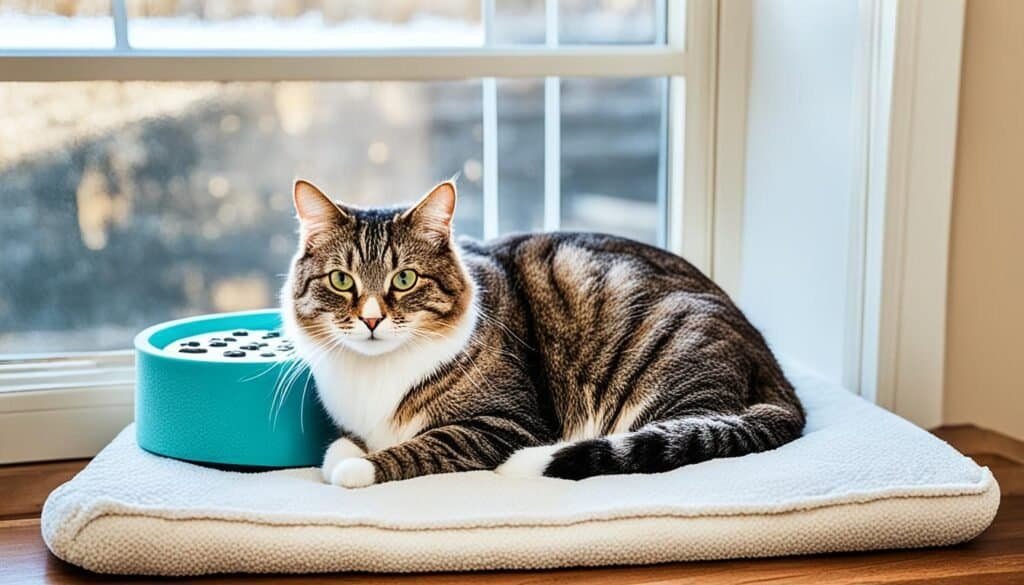
| Benefits of Providing Comfort and Mobility for Senior Cats |
|---|
| 1. Reduces joint pain and discomfort |
| 2. Improves overall well-being and quality of life |
| 3. Increases their ability to engage in daily activities |
| 4. Promotes better rest and relaxation |
| 5. Minimizes the risk of accidents or injuries |
Behavioral and Mental Care for Aging Cats
As cats age, they may start to exhibit changes in their behavior. It’s important for pet owners to be aware of these changes and provide the necessary support to ensure the emotional well-being of their senior cats. Here are some tips for providing behavioral and mental care for elderly cats:
- Create a Calm Environment: Older cats can become more sensitive to changes in their surroundings. It’s essential to provide a calm and predictable environment to reduce anxiety and stress. Consider designating a quiet space where your cat can retreat to when they need some peace and quiet.
- Utilize Visual and Auditory Commands: As cats age, their hearing and vision may deteriorate. To help them navigate their environment more effectively, you can incorporate visual and auditory cues. For example, you can use brightly colored toys or treats to catch their attention, or use distinctive sounds to call them.
- Offer Ample Mental Stimulation: Engaging your senior cat’s mind with interactive toys and puzzles can help keep their cognitive abilities sharp. Consider providing toys that require problem-solving or hiding treats for them to find. This mental stimulation can help prevent boredom and promote a sense of fulfillment.
- Encourage Gentle Playtime: While older cats may have reduced desire to play, gentle and low-impact activities can still be beneficial. Use interactive toys or gentle movements to engage your cat in short play sessions. This can help maintain their muscle tone and mental alertness.
Remember, every cat is unique, and what works for one may not work for another. It’s important to observe your cat’s behavior and make adjustments accordingly to meet their individual needs. If you notice significant changes in your cat’s behavior or if they appear to be experiencing distress, consult with your veterinarian for further guidance and support.
Here’s an image related to this section:
| Common Changes in Behavior in Aging Cats | Possible Causes |
|---|---|
| Increased anxiety | Changes in their environment, health issues, cognitive decline |
| Reduced desire to play | Pain, decreased energy levels, joint stiffness |
| Increased vocalization | Hearing loss, cognitive decline, medical conditions |
| Changes in litter box usage | Pain, urinary tract issues, decline in litter box cleanliness |
Regular Veterinary Care for Senior Cats
Regular veterinary check-ups are crucial for the health and wellbeing of senior cats. It is recommended to schedule these check-ups every four to six months to ensure early detection of any potential health issues and to implement preventive measures. These routine visits form an essential part of elderly cat healthcare, allowing your veterinarian to provide tailored care based on your cat’s specific needs.
During these veterinary check-ups, several key components are addressed to ensure the overall wellbeing of your senior cat:
- Vaccinations: Vaccinations play a crucial role in protecting senior cats from diseases. Your veterinarian will determine the vaccines necessary based on your cat’s lifestyle and medical history.
- Dental Evaluations: Dental problems are common in aging cats and can cause discomfort and affect their overall health. Your veterinarian will conduct thorough dental evaluations, including dental cleanings and potential extractions, to maintain your cat’s oral health.
- Blood Tests: Blood tests are highly recommended for senior cats to screen for various age-related health conditions such as kidney disease, diabetes, and thyroid issues. These tests provide valuable insights into your cat’s overall health and help detect potential problems at an early stage.
By prioritizing regular veterinary check-ups for your senior cat, you can proactively address any health concerns and ensure that your furry friend receives the necessary care to enjoy a healthy and comfortable life.

Benefits of Regular Veterinary Care for Senior Cats
The benefits of regular veterinary care for senior cats are numerous:
- Early Detection: Regular check-ups allow for the early detection of health issues, potentially preventing them from worsening and improving the outcome of treatment.
- Preventive Measures: Through regular examinations and screenings, your veterinarian can implement preventive measures, such as vaccinations and parasite control, to protect your cat from common illnesses.
- Individualized Care: Each senior cat has unique health needs. Regular veterinary care ensures that your cat receives personalized and targeted care to address their specific requirements.
- Improved Quality of Life: By addressing health issues promptly and providing necessary treatments, regular veterinary care contributes to your senior cat’s overall wellbeing and enhances their quality of life.
Remember, even if your senior cat appears healthy, regular veterinary check-ups are essential for preventive care. Consult with your veterinarian to create a tailored healthcare plan that meets your cat’s specific needs and ensures their ongoing health and happiness.
Weight Management and Exercise for Senior Cats
As cats age, their weight can become a concern. Senior cat weight management is important to ensure their overall health and well-being. Whether your senior cat is overweight or underweight, monitoring their weight and making appropriate diet adjustments is essential. Along with a balanced diet, exercise for older cats is also crucial to maintain their physical and mental health.
When it comes to senior cat weight management, it’s important to consult with your veterinarian. They can provide guidance on determining the ideal weight for your cat and creating a customized weight management plan. This may involve adjusting portion sizes or switching to a specially formulated senior cat food that supports healthy weight maintenance.
In addition to diet management, exercise is an excellent way to keep your senior cat active and engaged. While older cats may not have the same energy levels as their younger counterparts, there are still plenty of low-impact exercises they can enjoy. Interactive play sessions, such as using feather toys or laser pointers, can help stimulate their mind and encourage physical activity.
Senior cats also benefit from enrichment activities that promote mental stimulation. Puzzle toys or treat-dispensing toys can keep them entertained and mentally sharp. Additionally, providing scratching posts and climbing surfaces can help maintain their agility and satisfy their natural instincts.
Remember to start any exercise regimen gradually and observe your cat’s comfort level. If your cat shows any signs of distress or fatigue during exercise, it’s important to stop and consult with your veterinarian. They can recommend alternative exercises or modifications to ensure your cat’s safety.
| Benefits of Exercise for Senior Cats | Tips for Senior Cat Exercise |
|---|---|
|
|
By managing your senior cat’s weight and incorporating regular exercise into their routine, you can help them maintain a healthy and active lifestyle. Remember to consult with your veterinarian for personalized advice on senior cat weight management and suitable exercise options. With proper care and attention, your senior cat can enjoy their golden years to the fullest.
Conclusion
Properly caring for older cats is crucial to ensuring their overall wellness and happiness. As our feline companions age, their needs change and require special attention. By understanding their age-related requirements and implementing appropriate care strategies, you can provide your senior cat with a comfortable and fulfilling life.
One of the key aspects of senior cat care is nutrition. Opt for senior cat food formulas that cater to their specific dietary needs, including easily digestible proteins and controlled calorie intake. This will help manage their weight and prevent issues like obesity.
Regular veterinary check-ups are essential for detecting and addressing any health issues early on. These visits also allow for preventive measures such as vaccinations and dental evaluations. Consult with your veterinarian to create a personalized healthcare plan for your senior feline companion.
Furthermore, creating a comfortable and safe environment for your aging cat is crucial. Provide them with soft bedding, minimize jumps by arranging accessible furniture, and ensure a warm and quiet space for them to relax. Supporting their mobility and mental well-being is equally important.
Remember, every senior cat is unique, and consulting with your veterinarian is the best way to address their specific needs. With the right care, love, and attention, your older cat can enjoy a happy and healthy life in their golden years.
FAQ
How can I determine my cat’s age and life stage?
What are the signs of aging in cats and common health issues they may face?
What kind of nutrition and diet do senior cats need?
How can I provide comfort and promote mobility for my senior cat?
How can I support the behavioral and mental well-being of my aging cat?
How often should I take my senior cat for veterinary check-ups?
How can I manage my senior cat’s weight and ensure they get enough exercise?
What are the essential tips for caring for older cats?
Last modified: February 19, 2024

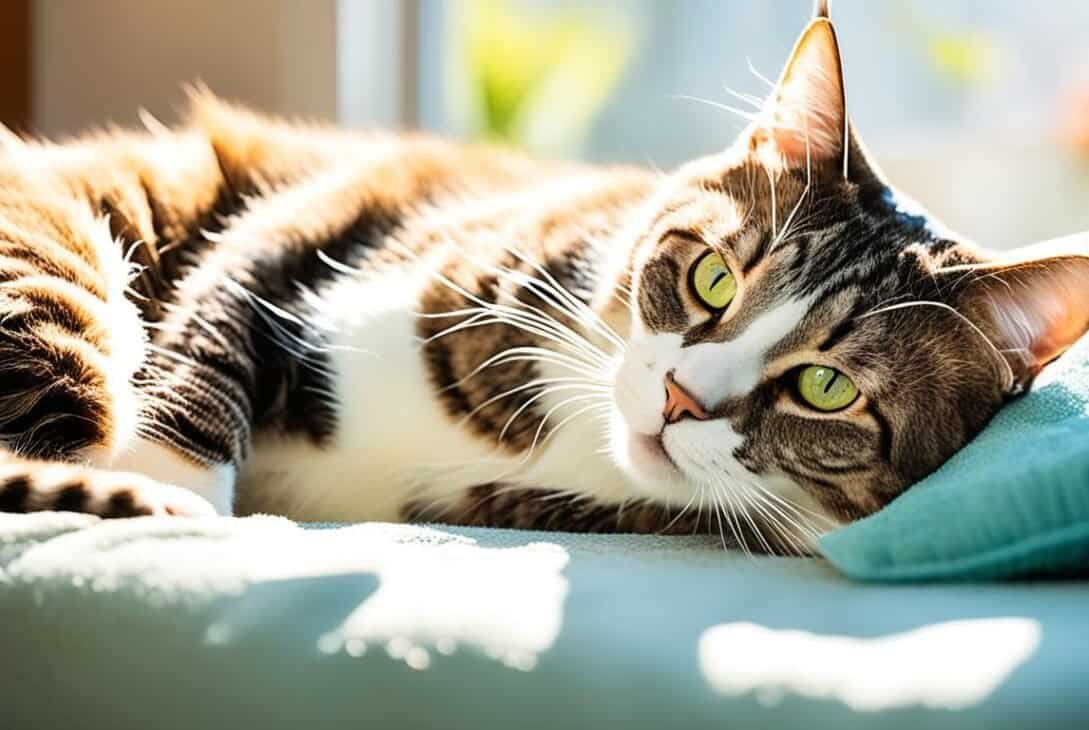
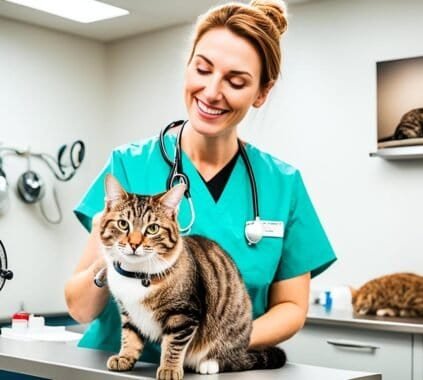
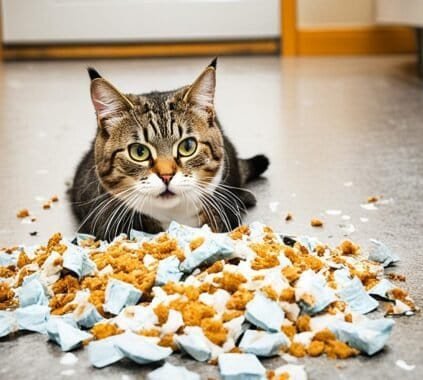
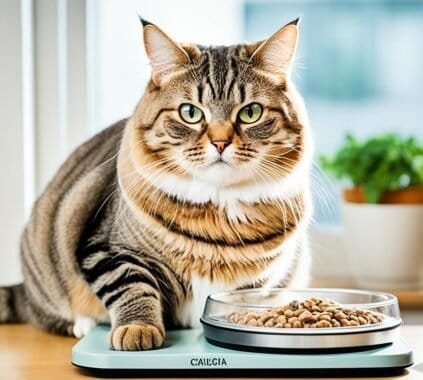
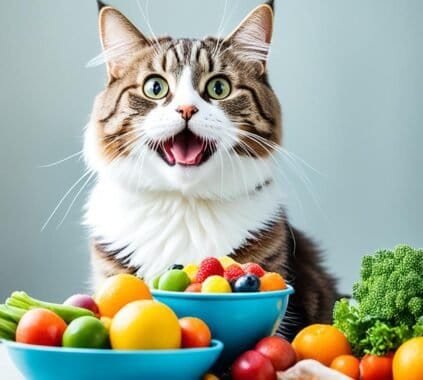


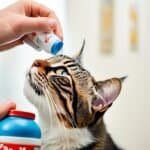





[…] seizures can be a symptom of an underlying health condition. Seeking professional veterinary care is essential to ensure your cat receives the necessary treatment and […]
[…] When dealing with injured cats, it’s crucial to handle them with care and ensure their safety during restraint and transport. Follow these tips to provide proper care: […]
[…] as dental plaque, periodontal disease, and bad breath. In this section, we will provide you with essential tips and guidance on how to ensure optimal cat dental care for your furry companion. By following these recommendations, you can help keep your cat’s […]
[…] Senior cats require extra care and attention during travel. Here are a few tips to ensure their safety: […]
[…] is an essential aspect of cat care, as it not only provides physical exercise and mental stimulation but also helps address behavioral […]